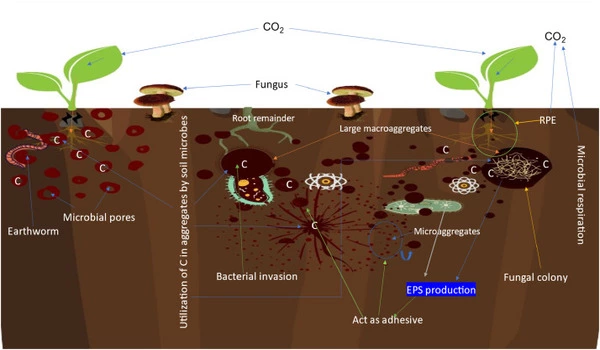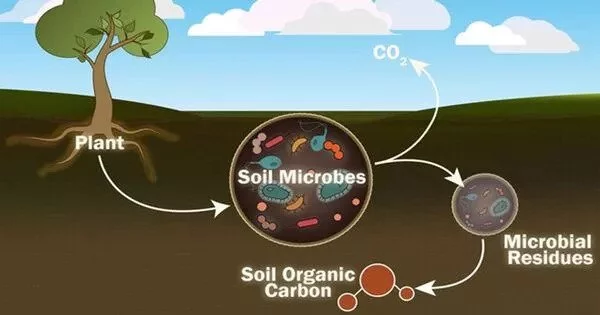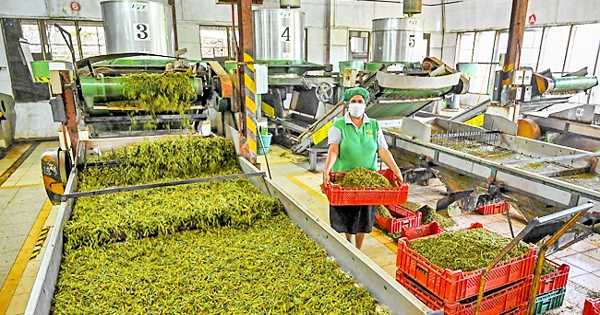Microbes play an important role in carbon sequestration in soil. Soil microbes, such as bacteria, fungi, and other microorganisms, aid in the decomposition of organic matter and the formation of stable carbon compounds. This is referred to as soil carbon sequestration.
According to a new study with implications for climate change mitigation and improving soil health for agriculture and food production, microbes are by far the most important factor in determining how much carbon is stored in the soil.
The study is the first to quantify the importance of microbial processes in the soil carbon cycle. The study’s authors discovered that the role of microbes in carbon storage in soil is at least four times more important than any other process, including bio-matter decomposition.
That is critical information: Soils on Earth hold three times more carbon than the atmosphere, making them an important carbon sink in the fight against climate change.
This work reveals that microbial carbon use efficiency is more important than any other factor in determining soil carbon storage. But we are the first group that can evaluate the relative importance of microbial processes versus other processes.
Yiqi Luo
“Microbial Carbon Use Efficiency Promotes Global Soil Carbon Storage,” published in Nature, describes a novel approach to better understanding soil carbon dynamics by combining a microbial computer model with data assimilation and machine learning to analyze big data related to the carbon cycle.
The method assessed microbial carbon use efficiency, which indicates how much carbon microbes used for growth versus how much was used for metabolism. Carbon is sequestered by microbes in cells and eventually in the soil when used for growth, and carbon is released as a byproduct in the air as carbon dioxide, where it acts as a greenhouse gas when used for metabolism. Ultimately, growth of microbes is more important than metabolism in determining how much carbon is stored in the soil.
“This work reveals that microbial carbon use efficiency is more important than any other factor in determining soil carbon storage,” said Yiqi Luo, the Liberty Hyde Bailey Professor in the School of Integrative Plant Science in the College of Agriculture and Life Sciences, and the paper’s senior author.

The new findings point agricultural researchers in the direction of researching farm management practices that may influence microbial carbon use efficiency, thereby improving soil health and ensuring greater food security. Future research may look into ways to increase overall soil carbon sequestration by microbes. Researchers may also investigate how different microbes and substrates (such as those rich in sugars) affect soil carbon storage.
Soil carbon dynamics have been studied for over two centuries, but the focus has primarily been on how much carbon enters the soil from leaf litter and roots, and how much is lost to the atmosphere as CO2 when organic matter decomposes.
“But we are the first group that can evaluate the relative importance of microbial processes versus other processes,” Luo said.
Luo and colleagues made a breakthrough in cutting-edge digital agriculture by developing a method to integrate big data into an earth system computer model using data assimilation and machine learning.
According to the model, the overall carbon use efficiency of microbe colonies was at least four times as important as any of the other components studied, including decomposition and carbon inputs.
The new process-based model and machine learning approach that enabled this result for the first time opens the door to applying the method to other types of large data sets.
















